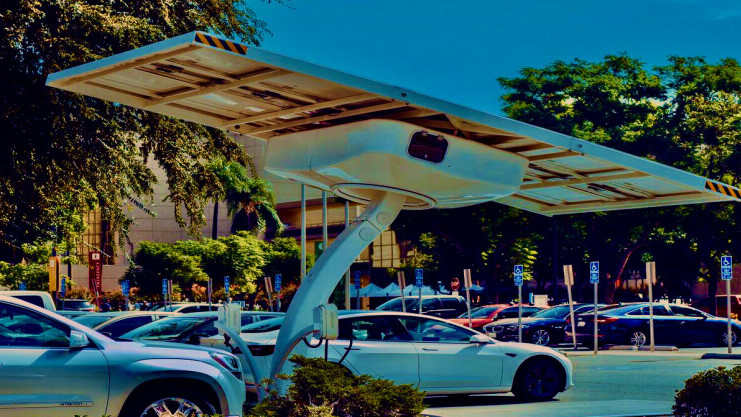
We reported in September that the UK was making the installation of EV chargers a prerequisite for newly built homes and offices. But now it’s official, with British Prime Minister Boris Johnson formally announcing the initiative at the CBI annual conference.
From 2022, new homes and buildings such as supermarkets, shopping malls, and workplaces will be required to install electric vehicle charging points.
Specifically, new office blocks will need to install a charge point for every five parking spaces, and the regulations also apply to large scale renovations with over ten parking spaces.
If you’re just getting going, here’s 4 mins on what happened when Boris Johnson spoke to the CBI on Monday. The speech featured some unusual moments. Thanks to everyone who’s already shared this. pic.twitter.com/2kfoN1hx3m
— Ros Atkins (@BBCRosAtkins) November 23, 2021
It was a strange bumbling speech, as reported by the BBC, where the British Prime Minister Boris Johnson lost his place in his notes and referenced a visit to Peppa Pig World. He also made some bold statements:
“This is a pivotal moment — we cannot go on as we are” and “We have to adapt our economy to the green industrial revolution.”
The sale of new petrol and diesel cars will end in Britain in 2030.
Substantial investment in EV charging
The UK government has funded over 250,000 home and workplace charge points to date, through the Electric Vehicle Homecharge Scheme (EVHS).
These grants provide a 75% contribution to the cost of one charge point and its installation. The grant cap is $467 (£350) including VAT per installation.
The main requirement is that a person owns, leases, or has ordered a qualifying vehicle and has dedicated off-street parking at their property. A person may apply for two charge points at the same property if they have two qualifying vehicles.
But what if you don’t have off-street parking?

According to EV charger company Ubitricity, more than 60% of households in English cities are without off-street parking. These numbers rise to 68% for people living in social housing. Access to affordable street-based EV charging will be essential for this substantial group to enter the EV market.
It’s hardly a saturated market — yet

However, electric and hybrid vehicles only make up 44.1% of new cars purchased in the UK this year.
However, as of September 21, there were more than 675,000 plug-in vehicles with approximately 345,000 BEVs and 325,000 PHEVs registered in the UK. Clearly, we’re going to need a lot more chargers both at home and in public. According to Zap-Map, there are currently over 17,374 locations with public chargers (one of more charging points in the UK).
Shopping malls and strips, here’s your chance to win back the punters

Overall, I’ll be interested to see if public EV charging requirements could be used as a catalyst to re-energize public spaces. I’m thinking specifically of areas like High Street retail shopping strips and shopping malls. These are critical examples of bricks and mortar retail that died a horrible death as we all moved our shopping online.
EV chargers put businesses on the map (literally in the case of EV charging maps). They create the opportunity for new customer incentives and relationships.
It’s an opportunity for new business models that, if done right, could transform public retail spaces for the better into something relevant and responsive to public needs.
Get the TNW newsletter
Get the most important tech news in your inbox each week.




